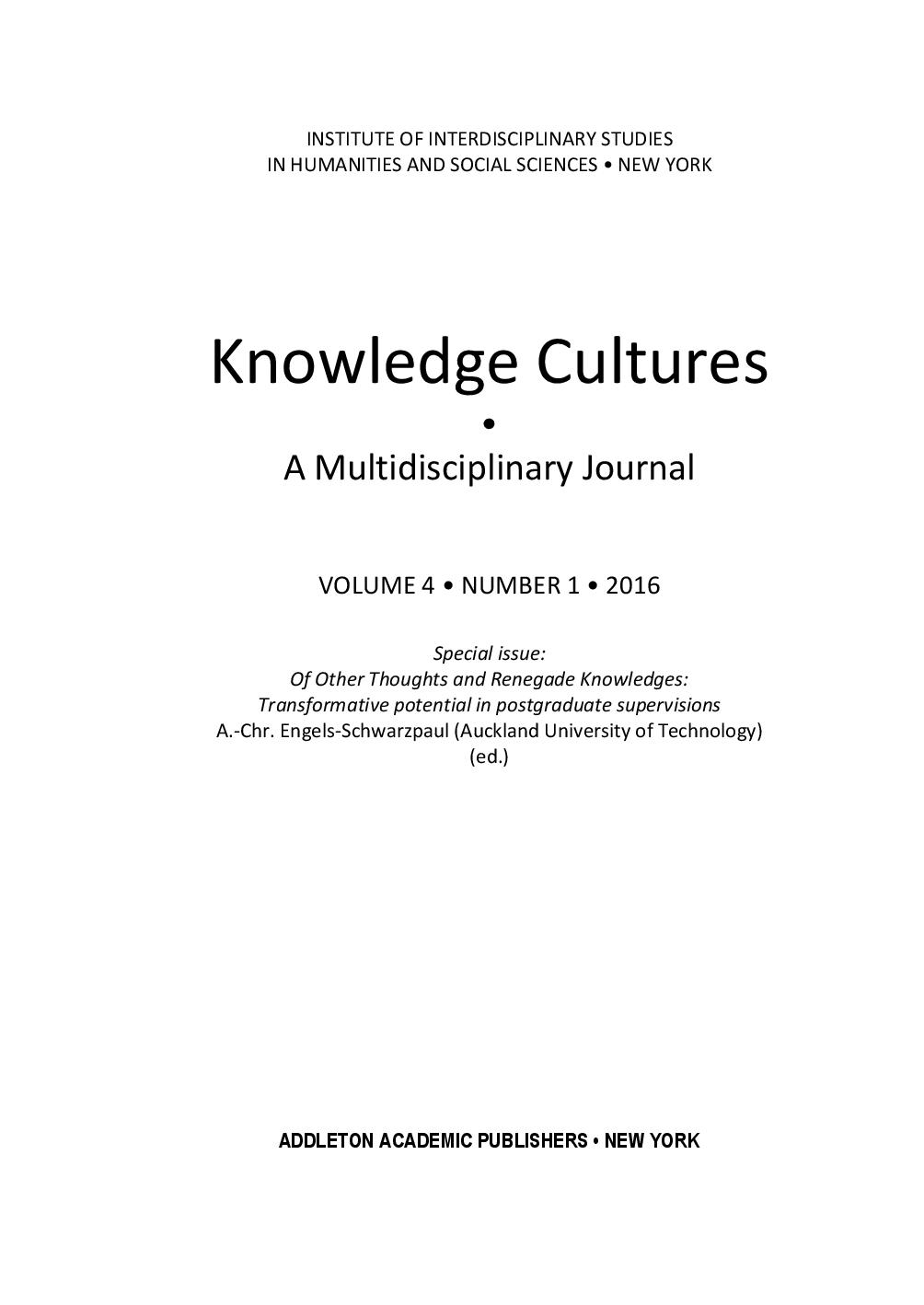MOBILISING INDIGENOUS AND NON-WESTERN THEORETIC-LINGUISTIC KNOWLEDGE IN DOCTORAL EDUCATION
MOBILISING INDIGENOUS AND NON-WESTERN THEORETIC-LINGUISTIC KNOWLEDGE IN DOCTORAL EDUCATION
Author(s): Michael Singh, Catherine Manathunga, Tracey Bunda, Qi JingSubject(s): Higher Education , Methodology and research technology
Published by: Addleton Academic Publishers
Keywords: transcultural collaborative research; research education; intellectual equality; doctoral supervision; research writing;
Summary/Abstract: Globalization has produced contradictory processes that promote the movement of people and ideas across geographical and epistemological boundaries yet continue to reinforce the dominance of White, Western knowledge production. Intended or not, globalization may yet turn out to be the source of new intellectual labor responsible for generating new theoretic-linguistic knowledge. This article explores the possibilities inherent in the increasing presence of Indigenous and “non-Western” students in White, Western universities. A theoretical model of transcultural co-research practice developed by the authors demonstrates how, as a research team, we engage in transcultural co-research. We propose a transcultural approach to the vā (Refiti, 2013) of research education, which activates and mobilizes Indigenous and non-Western research candidates’ theoretic-linguistic contributions to knowledge.
Journal: Knowledge Cultures
- Issue Year: 4/2016
- Issue No: 01
- Page Range: 56-70
- Page Count: 15
- Language: English
- Content File-PDF

